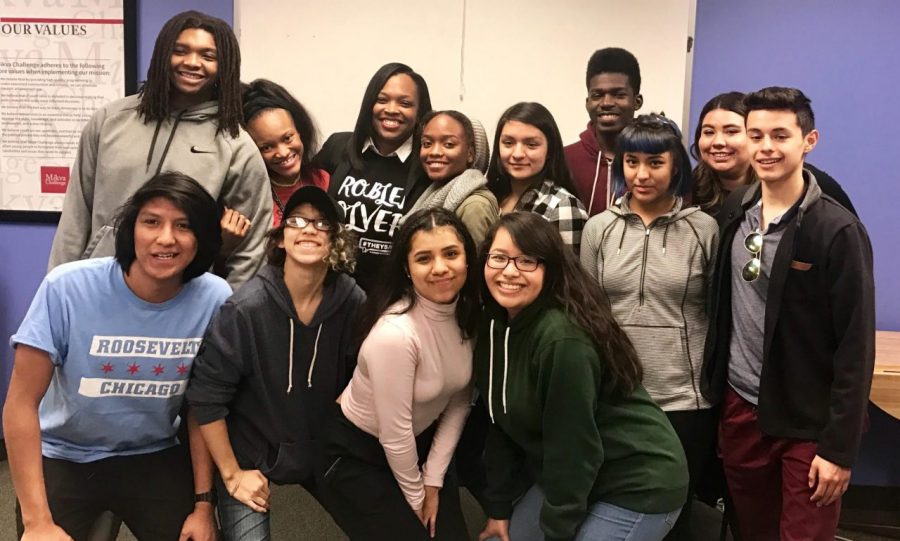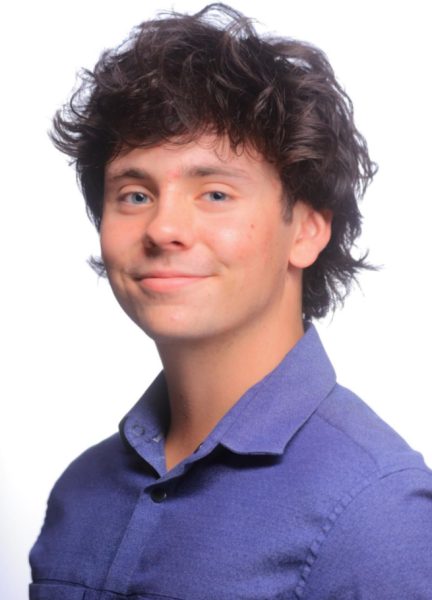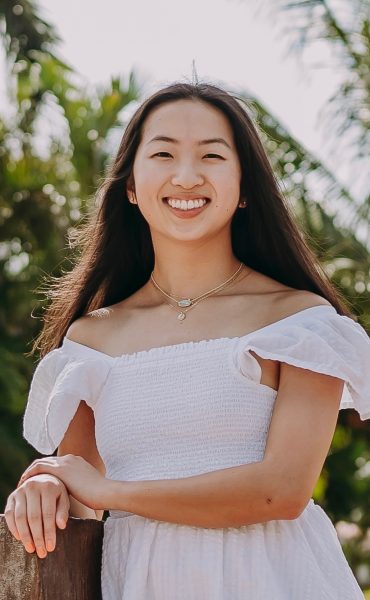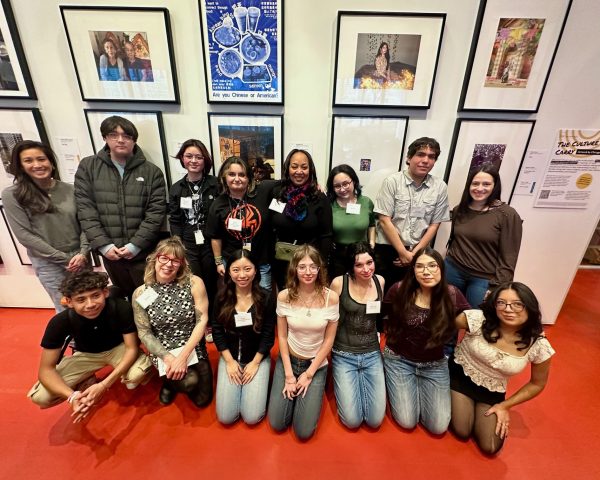Student finds passion for public speaking from CPS Student Advisory Council
Uriel Bandera, far right, with other members of the CPS Student Advisory Council, their coordinator and CPS CEO Dr. Janice Jackson. “We talk about social issues that we encounter in society, in schools, in our communities, and we work on activism,” Bandera said. ( Photo courtesy of Joshua Prudowsky/Mikva Challenge)
During his sophomore year, Uriel Bandera, Div. 860, broke a school record on the track team and was planning to attend a track and field training camp during that summer. But when he injured his foot, the future of his student athletic career looked bleak.
So instead, he decided to apply to the CPS Student Advisory Council, an initiative supported by the Mikva Challenge organization.
“I don’t regret breaking my foot because it changed my life,” Bandera said. “I got the opportunity to go to Mikva and because of that, I am in the position where I am right now.”
The CPS Student Advisory Council (SAC) is a collaboration of high school students from all across Chicago whose mission is to “influence policy change promoting community investment in neighborhood schools,” according to SAC’s website.
Students on the SAC get to work with various CPS leaders such as CEO Dr. Janice Jackson to help come up with recommendations on how to address issues impacting CPS schools, such as improving the perception of neighborhood schools.
Mikva Challenge is an organization that “develops youth to be empowered, informed, and active citizens who will promote a just and equitable society,” according to their website.
The SAC is working on changing a state law to increase the amount of students representatives allowed on a Local School Council — which currently only allows one student representative on each Council, Bandera said.
Now in his second year with the SAC, Bandera has taken on a larger leadership position in guiding the first-year members.
“This year I took on the role of challenging everybody and showing them different perspectives so they could really attack the issue from different perspectives,” Bandera said. “I question them, challenge them to think of different things rather than to just stick with one principle.”
Working with high school students from all over Chicago opened his eyes to the inequitable distribution of resources throughout the city’s schools, Bandera said.
He said he recalls hearing stories from other members of the SAC about shootings occurring outside their school or their school being unable to afford new books.
“It opens my eyes because I get a perspective from different people and I learn so much from them and they learn so much from me,” Bandera said. “Because of that, we’re able to gather information from all over the city and utilize that to make a better city.”
The SAC meets five times a week during the summer. During the school year, the members split up with their assigned coordinators and meet 3-4 times a month. Then, the SAC meets as a whole once every 2-3 months, according to Bandera.
“We talk about social issues that we encounter in society, in schools, in our communities, and we work on activism,” Bandera said. “Protests, marches, we work on speeches together — anything we feel is empowering through youth voice.”
Before joining the SAC, Bandera described himself as an introverted person.
“I was the epitome of a shy kid. I did not talk to anybody,” Bandera said. “I wasn’t able to stand up in front of 10 kids to present for a group project in school.”
But after joining the SAC, Bandera said he found a passion in activism and public speaking.
In the beginning of the school year, Bandera said he took part in a presentation in front of many CPS principals to provide recommendations on implementing a plan to reduce the stigma of neighborhood schools.
For the past two years, he also participated in Project Soapbox which is a public speaking competition held by the Mikva Challenge that allows students “to speak out on issues that affect them and their communities,” according to the Mikva Challenge website.
The speeches are about two minutes long. Last year, Bandera’s speech was about police brutality. This year, Bandera said he presented his speech in front of a crowd of people in downtown near Cloud Gate on the topic of the lack of confidence on society.
Bandera said he hopes to use his voice to empower those around him.
“I feel the voice is empowering especially for the youth and it does make a difference,” Bandera said. “I want to not only talk about it, but I want to show others that their voice is powerful. It’s times like this, where I feel like people need to stand up and I want people to speak out their voice and that’s what I’m trying to accomplish through the Advisory Council.”
Your donations directly fund the Lane Tech student journalism program—covering essential costs like website hosting and technology not supported by our school or district. Your generosity empowers our student reporters to investigate, write, and publish impactful stories that matter to our school community.
This website is more than a publishing platform—it's an archive, a research tool, and a source of truth. Every dollar helps us preserve and grow this resource so future students can learn from and build on the work being done today.
Thank you for supporting the next generation of journalists at Lane Tech College Prep!
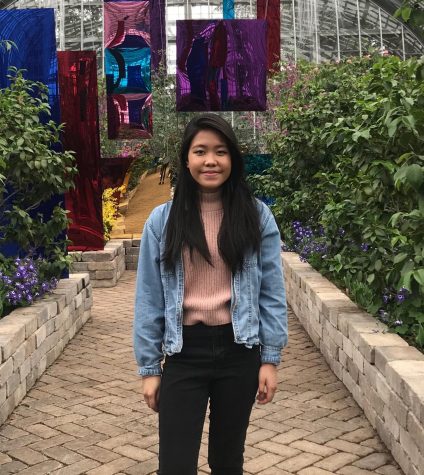
Eunice Alpasan was born in the Philippines and moved to the U.S. when she was three years old. She enjoys listening to music and watching movies. Eunice...

